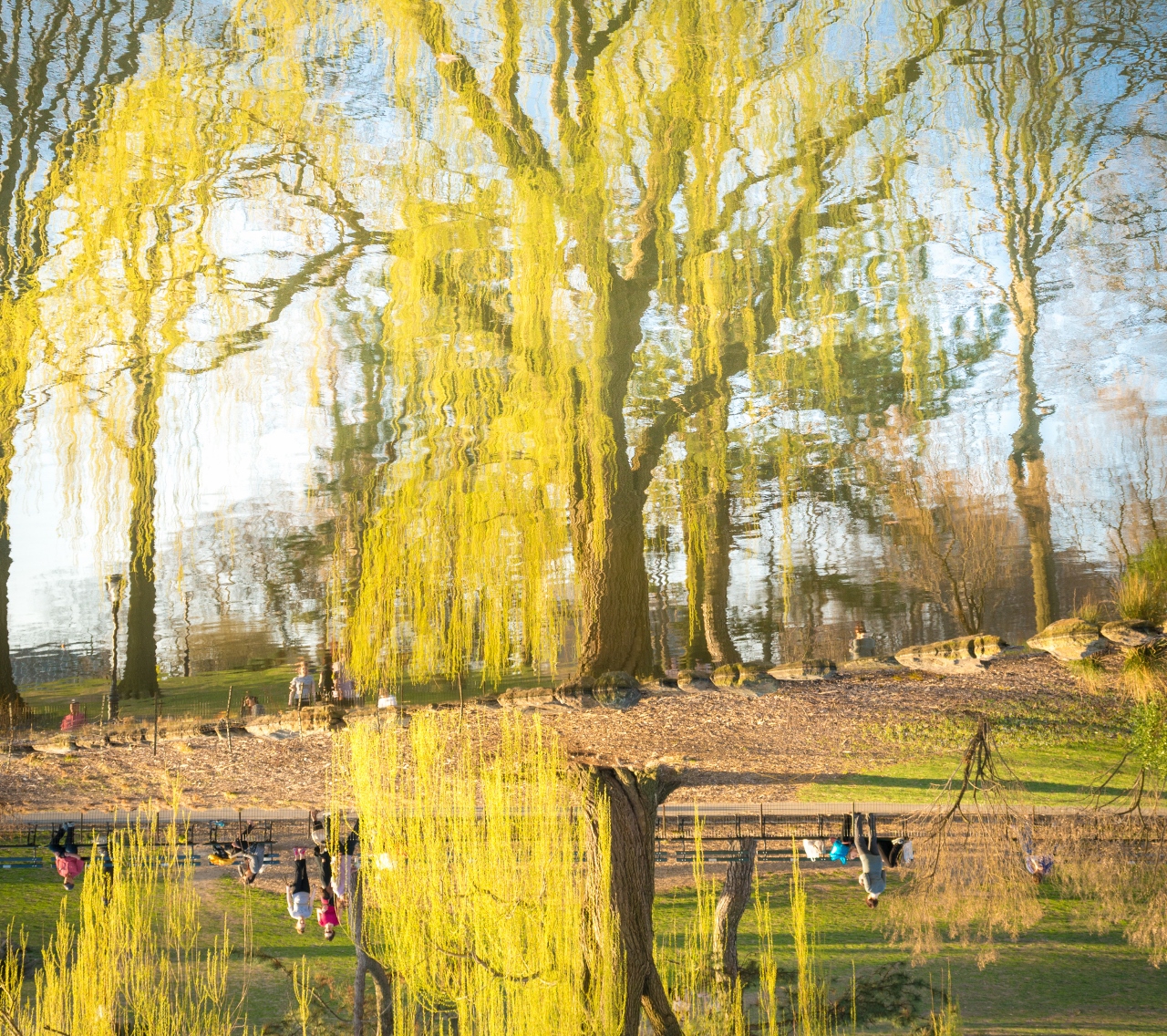Do Jesus’ Followers Care About the Environment?
Aerial images of Ethiopia reveal small forest enclaves surrounded by large swathes of arid desert. At the center of most of the oases are churches. These congregations have preserved the forest for centuries, motivated by the belief that “every creature is a gift from God and needs its habitat.” In recent years, conservationists have partnered with some of these churches to continue protecting the forests and even expand them.1 This fascinating story is one example of how faith in Yeshua spurs care for the earth. Ecology is one of the most pressing issues of our time, and the Bible certainly has much to say about it.
Although the relationship between environmental movements and Jesus’ followers is not always as harmonious as the case in Ethiopia, the Bible presents the earth as something good that should be protected and will ultimately be restored to a state of peace and well-being. The Bible opens with God creating the universe, of which humans are the pinnacle. It is only humans who are made in God’s image and are given authority over the earth (Genesis 1:26-27). This authority is not a warrant for tyrannical rule, but a call to care for what God has made. Being made in God’s image means that we can and should reflect God’s loving character to each other and the world. Unfortunately, instead of radiating kindness and generosity, people often demean and exploit. Our wrongdoing has sabotaged our relationship with God, our fellow man, and the natural world.
The biblical creation narrative is so central to the thinking of Jesus’ followers that they often employ the term creation in much the same way that people say “nature” to remind us that God made everything and it belongs to him.2 Certain strains of environmentalism exalt nature to the point where it becomes a god in its own right, which is one reason why some followers of Yeshua are reluctant to support the movement. In contrast, the Bible teaches that we should love the earth as the natural outworking of love for God, who created it all. It is the difference between feeling spiritually connected to a forest, and praising God for the beautiful forest he has made. In other words, Scripture encourages care for the earth, but for quite different reasons.
A key part of the Bible’s perspective of the natural world is the following: Nature’s current state is not what God originally created. Human wrongdoing has marred creation itself, as pollution, vanishing forests, and endangered species attest (Romans 8:20–21). Fortunately, this is not the end of the story. Through Yeshua, God will restore all things, including the natural world, which he wants to restore to its former glory. Scripture looks forward to a day when all the earth will live in harmony under Yeshua’s just rule (Isaiah 11:6–9; Hosea 2:18–19). This new world will be an environment without violence, where all creatures will thrive. Hope in the earth’s future healing should rouse Yeshua’s followers to do what they can to safeguard its health until he establishes his reign.
In fact, caring about the environment is an extension of loving people (Mark 12:29–31). Although some of Jesus’ followers are wary of ecological causes because they want to prioritize humanitarian ones, it has become clear that the two are profoundly connected. The phrase “when creation suffers, people suffer” summarizes this well.3 Caring for people necessitates caring about their physical environment. In many cases, the vulnerable are most affected by unsafe living conditions. One study on the social repercussions of pollution explains that “the socially disadvantaged are more likely to live near chemical plants, landfills, and other contaminated lands.”4 Therefore, compassion for those in need, which is a major theme of Jesus’ teaching (Luke 10:29–37; Mark 3:1–5), should spur his followers to action. For instance, carbon emissions from cars leads to inferior air quality, particularly in crowded areas such as large cities. Walking, biking, and taking public transit when possible limit this, leading to cleaner and healthier air.
Love for God and love for people motivate Yeshua’s followers to care for the earth. This could mean donating to protect endangered species, cleaning trash off the beach, recycling, giving old clothes and books to a thrift store instead of putting them in the trash, or preserving trees like the congregations in Ethiopia are doing. While the relationship between ecology and faith in Jesus is admittedly complicated, many of his followers are dedicated to safeguarding the environment until he heals it in full.
Footnotes
- Alison Abbott, “Biodiversity Thrives in Ethiopia’s Church Forests,” Nature, https://www.nature.com/immersive/d41586-019-00275-x/index.html (accessed June 20, 2020).
- In many cases, creation is synonymous with “nature,” but it has a wider scope. “Nature” generally refers to the non-human elements of our planet, but “creation” encompasses humans and astronomical bodies as well. For example, one might say that all creation praises God because in the biblical book of Psalms, it is written that people, sea creatures, mountains, and even the stars worship him (Psalm 148).
- Christopher J. H. Wright, “Tending God’s Earth,” in When God and Science Meet: Surprising Discoveries of Agreement (Washington, D.C.: National Association of Evangelicals, 2015), 60.
- Yoosun Park and Joshua Miller, “The Social Ecology of Hurricane Katrina: Re-writing the Discourse,” Smith College Studies in Social Work 76:3 (2006): 2.



